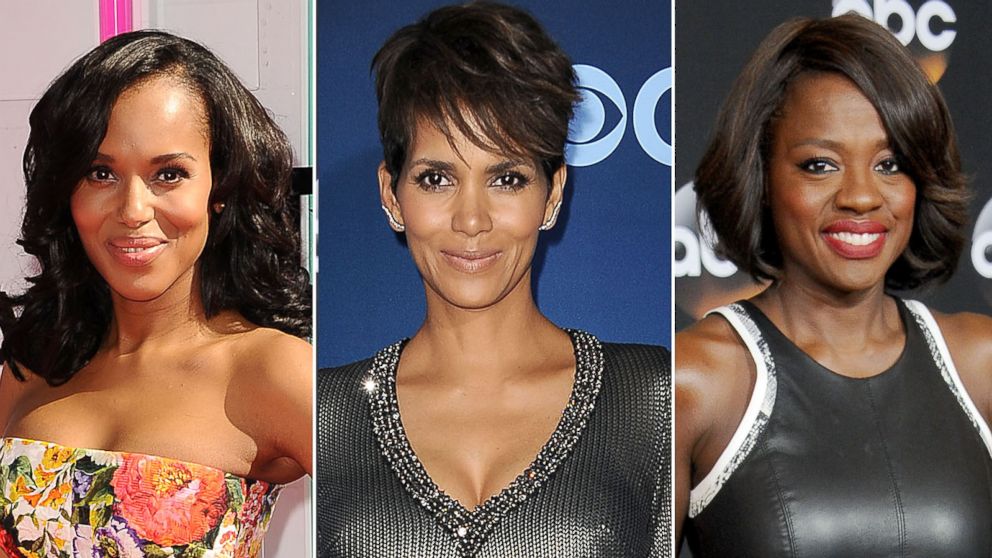Black Hollywood Actresses Migrating to TV
Halle Berry and Viola Davis come to TV in wake of Kerry Washington's success.

— -- Black actresses are the latest group in Hollywood to discover what other A-listers, including Matthew McConaughey, Kevin Spacey and Jessica Lange, already have: some of the best roles right now are on the small screen.
Oscar-winner Halle Berry and two-time Oscar nominee Viola Davis are among the black female film stars making the move to television, following Kerry Washington's success on the hit ABC show "Scandal." Behind the camera, Oscar nominee Angela Bassett is making her directorial debut with a television movie, Lifetime's biopic of Whitney Houston.
The reason behind the latest black migration?
"Opportunity," Thelma Adams, contributing editor at Yahoo! Movies, told ABC News. "The simple answer is opportunity. Kerry Washington led the way with 'Scandal.'"
The so-called New Golden Age of Television is especially sweet for black women, who already face a paucity of roles in Hollywood.
"I've gotten some wonderful film roles, but I've gotten even more film roles where I wasn't the show. It feels like I've been invited to a really fabulous party only to hold up the wall," Davis told reporters recently at the Television Critics Association's summer tour. "I wanted to be the show. I wanted a character who took me out of my comfort zone. That character happened to be in a Shonda Rhimes show. So I did the only sensible thing and took it."
Shonda Rhimes on Diversity: 'The Shows Speak for Themselves'
Halle Berry's 'Extant' Leads in TV Ratings
Starting this fall, Davis will play criminal law professor Annalise Keating in Rhimes' newest show for ABC, "How to Get Away with Murder." Davis, who was nominated for "The Help" and "Doubt" and won a Tony for August Wilson's "King Hedley II," describes her character as "messy and mysterious and you don't necessarily know who she is."
"She's not nurturing like 'come sit on my lap.' She's not the kind of person who needs God, Jesus or Buddha, because she knows all the answers. She's sexy, she's vulnerable," Davis told reporters.
For Davis, playing Keating is also an opportunity to see someone like her, a dark-skinned woman in her late 40s, playing the lead role on screen.
"There is no way in the history of film or TV that you've seen a character like this played by a black woman who looks like me," Davis, 48, told a handful of journalists after the TCA news conference. "This is progressive. This is a first."
Added Davis, "Not even Kerry Washington or Halle Berry [looks like me]. I'm talking about a black woman who looks like me -- a dark-skinned black woman with the nose, the age, in every way like me. No one has taken my look in that way and put it on the screen. Shonda's been the first."
Rhimes, who is the creator of "Scandal" and "Grey's Anatomy," sidesteps questions about diversity, preferring that the work speak for itself. But she told the small group of reporters that "the world of television should look like the world outside."
"Given the huge struggle that continues in film for women to play the lead role in which they carry the plot and not just play the mother, the girlfriend, the sister, TV creates those roles," Adams said. "Everywhere you look [on TV], you see women who are staking a claim in major shows. And now African-American women are getting a piece of that."
As material has gotten better on television, the divide between TV actor and film actor has diminished with stars moving between the two mediums.




